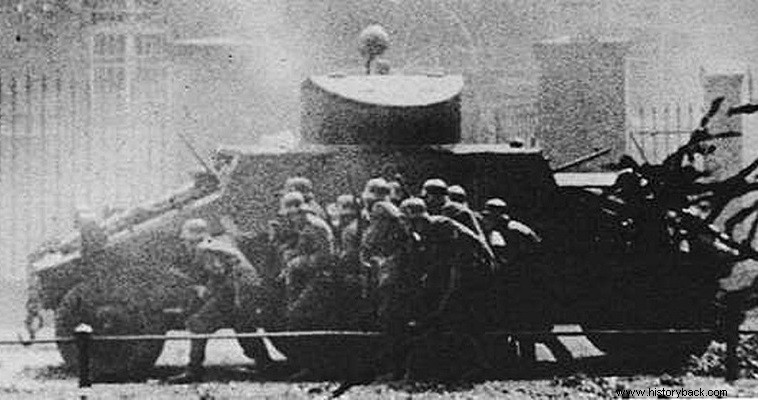
How could one characterize the resistance of 55 postal workers, a railroad worker and civilians, including a 10-year-old girl, against the Nazi hordes if not heroic?
On September 1, 1939, in what was then Gdansk (now Gdansk, Poland), the city's Polish postmen, expecting a German invasion, had barricaded themselves in the post office building, an old stone structure, in the central square. They were joined by members of their families and a railway employee, as well as the doorman of the building, together with his wife and their 10-year-old daughter Ervina.
The Poles, anticipating the invasion, had stored three submachine guns, 40 rifles and three boxes of grenades in the building. They were led by Konrad Gunderski, who had served as a reserve officer in the Polish army.
On the morning of September 1, about 200 Germans, mostly SS men, but also police, attacked the post office, supported by three armored vehicles and then by two 75mm guns. and one of 105 mm.
The Polish postmen, however, resisted heroically and repelled two attacks. Then the Germans blew up part of the walls with the cannons and tried to enter through the holes. At some point during the battle they succeeded.
But then Guderski fell on them, with grenades and blew himself up along with the invaders. The rest of the Germans, frightened, retreated. They immediately began fiercely bombarding the building, while also blowing up part of it, with 600 kg of explosives, causing the defenders to seek refuge in the basement.
Then the Germans poured gasoline into the basement and set it on fire. Three Poles were burned alive and several others suffered serious burns, including 10-year-old Ervina. The Poles, having no other hope, decided to surrender. When the postmaster, however, Jan Michon came out of the building, waving a white handkerchief, the Germans burned him alive with a flamethrower and killed another man who was accompanying him.
Eventually they allowed the surviving Poles to surrender. The 16 wounded Poles were sent to a hospital, but they were not given any treatment. So six of them, including little Ervina, died from the burns they had suffered.
The fate of the rest was worse. In violation of every law of war, the remaining Poles, after first being inhumanely tortured, were tried by a German court-martial on the charge of standing, as if they were German nationals!
In the parody itself, anyway, they weren't even allowed to speak and of course they were all sentenced to death and executed, along with the wounded survivors.
The judges in this staged trial never paid . After the war they continued to work as lawyers, in West Germany. In 1991, after the liberation of Poland from the Soviet shackles, searches began for the bones of the executed, which were finally found.
A monument was erected in their honor at the place of their sacrifice. In the battle of the Post Office, the Germans had 10 dead and 25 wounded, while one of their armored vehicles was also destroyed.
